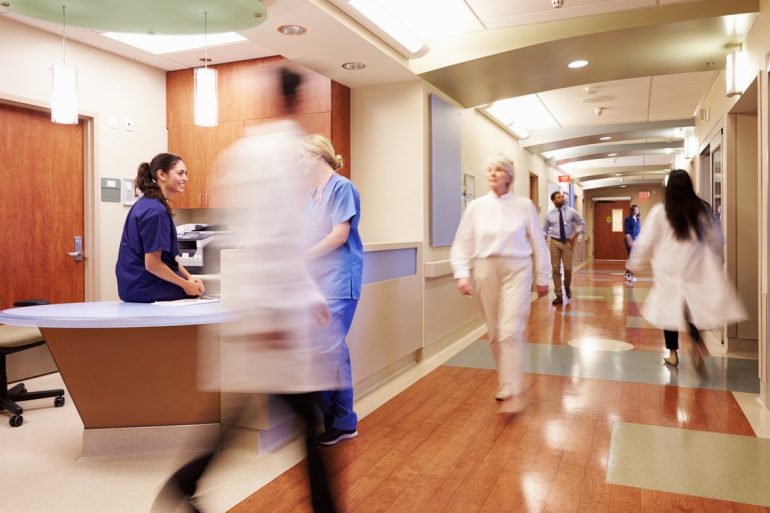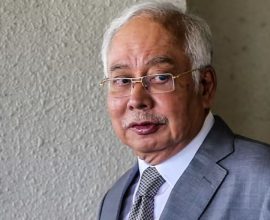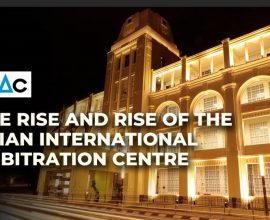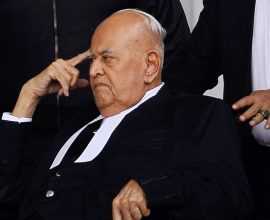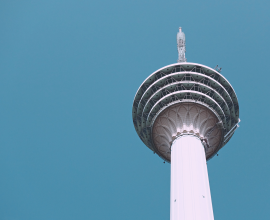Can the Government take over Private Hospitals?
The answer is, ‘Yes’. In the midst of the covid-19 pandemic, the Government has certain powers under the law. Could the Government press private medical practitioners to help fight the pandemic? What do you think?
A doctor friend called
He was quite patriotic.
‘What if’, he asked, ‘Government facilities are overburdened, and are unable to cope with the current coronavirus pandemic?’
‘Could the Government’, he asked, ‘take over private medical hospitals?’
I said, ‘Yes’.
He paused, and then he shot back a barrage of questions.
Three questions stood out:
(1). Could private doctors in that institution be pressed into service?
(2). Was the Private Hospital required to provide ‘free’ service, or could it be ‘indemnified’?
(3). What if the owner of the Private Hospital refused to hand-over?
Here are the answers:
The Government can take over Private Hospitals under the PCIDA
I had previously written – see here – that the relevant law gives the Government wide powers.
That law is set out in:
(1). the Prevention and Control of Infectious Diseases Act 1988 1PCIDA, and its regulations; namely:
(2). the 1988 Prevention and Control of Infectious Diseases (Importation and Exportation of Human Remains, Human Tissues and Pathogenic Organisms Or Substances) Regulations 2005 (‘The 2005 Regulations’); and
(3). the Prevention and Control of Infectious Diseases (Measures within the Infected Local Areas) Regulations 2020 (‘The 2020 Regulations’).
What are the duties of the Government under the PCIDA?
The duties of the Government under the PCIDA Act are to ‘prevent’ and ‘control’ any ‘infectious disease’.
That includes, ‘Any other life-threatening microbial infection’ — which pretty much describes the coronavirus pandemic.2Section 2, PCIDA, read with its First Schedule, Part 1, paragraph 24
To do that, the Act authorises the Government to ‘disinfect’, ‘inspect or conduct surveillance’; ‘immunise’, ‘isolate persons’ and ‘observe patients’ and to remove, or eradicate any ‘pathogenic organism or substance’ which includes ‘any living… microbe, bacteria, or virus’ or the ‘culture of any such organism’.
Who carries out these duties for the Government?
In order to assist him, the Minister, presumably, the Health Minister 3an incumbent who apparently has a predisposition for warm water can appoint ‘any suitable person’ to be an ‘authorised officer’ – and here comes the important phrase – ‘for the purposes of this Act ’ – meaning: to ‘prevent and control infectious diseases’.4Section 1, PCIDA
So, can the Government requisition a Private Hospital?
The answer is ‘Yes’, because of section 26.
That section is labelled – rather ominously, or helpfully – depending on how you look at it -‘Requisition of premises’.
And guess what?
‘Premises’ includes not only permanent structures but also temporary ones which are used in connection with any building…’.5Section 2, ibid.
So if the Government takes over your Private Hospital, it could take – ‘temporarily’ – everything associated with the building.
If it appears necessary to the Director General of Health, that to carry out the purposes of the PCIDA, he can take over any building.
He could do this by ‘authorising’ (who else but) an ‘authorised officer’ to ‘requisition temporarily any premises for such period’ as the DG thinks ‘is necessary’.6Section 26 (1)
This section gives almost Draconian powers to the DG
All he has to do is to form a subjective ‘opinion’ that the premise of the private hospital, ‘is necessary’, presumably, ‘for the purposes of the PCIDA’.
The Act does not say when the acquisition may be over.
It simply uses the phrase, ‘requisition temporarily any premises’.
And how is the word ‘temporarily’ to be determined?
That’s a second Draconian power: it is ‘for such period as in the opinion of the Director General is necessary’.
The Act gives no clue. And again there is no ‘internal consistency.’ It is a circular phrase – and strains the resources of the English language.
There are two other silver linings to this great cloud of uncertainty
Compensation is payable – but the Act does not say when the compensation must be paid
The second favourable proposition under the requisition powers of the Ministers is that, ‘the owner (of the Private Hospital) shall be paid compensation’.7Section 26 (2)
To make it worse, the Act says ‘compensation’ is to be ‘agreed between [the Private Hospital] – and the DG, or ‘determined by arbitration’.
That could become complicated.
The third one is no big deal.
When a premise is requisitioned under the PCIDA, it shall be ‘cleansed and disinfected before being returned to the owner’.8Section 26 (2)
Again the Act does not say how quickly this ‘cleansing exercise’ should take place.
What if the Government does not do it, and it forces the owner to carry it out himself?
Can the Private Hospital be compensated for that as well?
The position is not clear.
Could the Government take over the Hospital’s Equipment as well?
There is no direct answer to that. The Act is silent on this.
Look at the definition of ‘premises’: it includes ‘any structure … permanent or otherwise … ’.
An X-ray machine, you might argue, is not ‘premises’ but a piece of medical equipment’.
If you challenge this point in court, the Government may argue that the Private Hospital’s medical equipment forms an ‘integral part’ of the hospital’s ‘premises’ which is, as the Act puts it: ‘permanent or otherwise’.
‘Take the equipment out of the hospital’, the Government would argue, and ‘there is no hospital’.
So, by a roundabout way, the Government, it looks to me, might be able to get to your equipment as well.
A third reason is, if you refuse to hand over the equipment, they may see you as ‘obstructing’ an ‘authorised officer’ in the performance his statutory duties.
Here are some tips before you jump into a contract with the Government
(1). Before the Government requisitions the property, enter into a written agreement, and set out how much the Government must pay to the owner, in how many instalments, well beforehand.
Include in the agreement, a clause to the effect that if there are any extra damages, or if there is any injury to a person, damage to equipment, structures or vehicles of the hospital, the Private Hospital could claim extra compensation of a fair, but pre-determined amount.
(2). Do not get into any cahoots with the person in charge of the Government.
At a time like this, it is easy to be tempted.
Avoid it like a plague. You are looking at an MACC charge – no matter how cleverly you hide these transactions – whether by a series of unrelated transactions, billing for non-existent items, or over-billing for existing items.
It brings to mind how in the early 1980s, in a government contract, there were allegations that a packet of Maggie-Mee was sold for RM34.00.
Screwdrivers were said to be expensive too!
Every MACC officer is a trained professional, and knows what those tricks are.
(3). Determine, well beforehand, what is the Government’s probable duration of the occupation of the building.
If the Government wishes to take an extended period, work out what compensation should determine that extension of time.
(4). Do not arbitrate: unless the sums in contention are huge, and a technically qualified arbitrator is necessary.
Arbitration is good, efficient and speedy – but it is expensive.
So do a cost-benefit analysis.
Can the Director General take control of the vehicles belonging to the hospital?
The answer is, ‘Yes’.
The definition of ‘premises’ includes ‘… the land on which the structure is situated, and … any street, open space…’ – and here it comes – ‘or vehicle’.9Section 2, ibid.
So all vehicles belonging to the Private Hospital can be requisitioned as well.
But the Government can go further – it can even take over all temporary structures ‘associated with the hospital’, as well as open spaces surrounding the hospital – and that includes whole streets.
Can the Director General press into service, the private medical practitioners at the Private Hospital?
The Act is silent on this.
But it seems to me, on a proper construction of sections 2 and three of the PCIDA, the Minister does have the power to do it.
First, in exercising his powers, the Minister may appoint ‘any suitable person’ as an ‘authorised officer’ for ‘the purposes of this Act’.10section 3, PCIDA
Confusing definitions
And who should this ‘authorised officer’ be?
It is ‘any Medical Officer of Health, and a Health Inspector, or any officer appointed by the Minister under section 3’.11Section 2, PCIDA
Confusingly, the Act defines a ‘medical officer of health’ as a ‘government’ medical practitioner.12Section 2, ibid
That seems to exclude private doctors.
However, the Act confounds it further by defining a ‘medical practitioner’, as ‘a medical practitioner registered under the Medical Act 1971.13Section 2, ibid That seems to include private practitioners.
A purist would contest that this excludes private doctors.
Hold on a minute.
If you realise the Minister has powers to appoint ‘any suitable person’ ,14under section 3 that seems to settle the matter.
When called upon to do so, a private doctor has to serve the purposes under PCIDA.
Apart from a doctor’s ethical and moral duties under the Hippocratic Oath, there is another important point.
What if Private Doctors refuse to cooperate?
There is an old contractual principle: a person cannot be forced into performing a duty against his will.
But that is the law of contract.
Here the Minister is exercising his powers under an Act of Parliament: he has greater powers.
When push comes to shove, it becomes criminal to refuse
The Act warns that ‘any person who ‘obstructs, impedes, or disobeys any lawful order issued by an authorised officer, or refuses to furnish any information,’ commits an offence.
One is looking at a penalty of imprisonment for a term not exceeding two years, or fine, or both.15Sections 22, 23, and 24
And there you have it.
I hope to have answered your curiosity.

